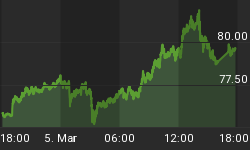The recent spate of better data on initial jobless claims has caused bond yields to rise, stock prices to rally and gold shares to tumble in the last few days. For the 6th time since 2010, an oasis of improving economic data (that has proven to be ephemeral each time in the past) is once again giving investors the false signal of a robust and sustainable recovery. This has in turn caused investors to once again wonder when the Fed would finally stop buying assets from banks and raise interest rates, which have been at zeropercent for over four years.
But the data on initial claims has been distorted by seasonal adjustments at the Labor Department. On an adjusted basis, initial jobless claims for the week ending January 19th dropped to 335k, which was the lowest level since January 2008. However, the raw data offers a different take on the labor condition. The unadjusted claims totaled 436,766 in the week ending January 19. That was 20k HIGHER than the 416k claims reported in the comparable week of 2012. The question is, how can initial claims be higher this year than the same week as last year; yet at the same time register the lowest level in 5 years?
Other data on the jobs front confirms the view that the labor market is not improving substantially whatsoever. From the January Empire State Manufacturing Report released last week: "Labor market conditions remained weak, with the indexes for both the number of employees and the average workweek remaining below zero for a fourth month in a row."
And then there is this from the Philly Fed's Manufacturing Survey: "Labor market conditions at reporting firms deteriorated this month. The employment index, at -5.2, fell from -0.2 in December. The percentage of firms reporting decreases in employment (16 percent) exceeded the percentage reporting increases (11 percent). Firms also indicated a decrease in the average workweek compared with last month."
Don't expect a NFP number that is much better than the 150k anticipated by the market. In fact, the odds are better for a significant miss to the downside.
Therefore, the market's view that the Fed will soon end its bond-buying program because the unemployment is about to drop near 6.5% is extremely premature. After all, QE IV is only a few weeks old. Bernanke just increased his purchases of MBS and Treasuries to $85 billion from $40 billion on January 1st. And the Fed's balance sheet just jumped by $46 billion last week, to reach a record $3.05 trillion as of January 23rd. That's because Mr. Bernanke is very much concerned about the level of austerity yet to be adopted. The Fed is also worried about consumers and businesses losing their confidence stemming from; the recent tax hikes, another debt downgrade of U.S. Treasuries, the $1.2 trillion spending cuts due to the sequestration, a three-month punt on the debt ceiling and continuous continuing resolutions to fund the government.
Overall, the economic data suggests that this Friday's Non-farm Payroll Report will not show significant job improvement. The Fed will remain loose for the foreseeable future; and that should cause bond yields to fall and gold prices to rally next week.
















